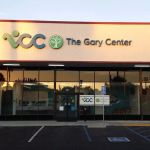What is Oral Candidiasis?
Oral candidiasis, or thrush, is a fungal infection that can affect the mouth, throat, and other parts of the body. It is often characterized by the presence of creamy white, raised lesions that may resemble cottage cheese. These lesions can occur on the tongue, inner cheeks, roof of the mouth, gums, tonsils, or back of the throat.
Symptoms and Causes
Thrush usually develops suddenly and its common symptoms include creamy white, slightly raised lesions in the mouth, especially on the tongue and inner cheeks. Other symptoms may include redness and soreness inside and at the corners of the mouth, loss of sense of taste, a cottony feeling in the mouth, and pain when the lesions are scraped or brushed. In severe cases, the infection can spread to the esophagus, causing pain or difficulty swallowing, a feeling that food gets stuck, and fever if it spreads beyond the esophagus. The causes of thrush include an imbalance in the body's normal flora due to illnesses, stress, or medications such as corticosteroids, antibiotics, and birth control pills. People with certain health conditions like diabetes, anemia, HIV/AIDS, cancer, dry mouth, pregnancy, and smoking, or those wearing ill-fitting dentures are at higher risk.
Diagnosis and Tests
A healthcare provider can usually diagnose thrush by visually inspecting the distinctive white lesions in the mouth. Lightly brushing the lesions away may reveal a reddened, tender area that might bleed slightly. A microscopic exam of tissue from a lesion can confirm the diagnosis. If the thrush extends into the esophagus, additional tests such as a throat culture, endoscopy, or X-rays of the esophagus might be performed.
Management and Treatment
The typical treatment for thrush is antifungal medications. These are available in various forms such as tablets, lozenges, or liquids that are swished around in the mouth before swallowing. The duration of treatment is usually 10 to 14 days. People with healthy immune systems typically respond well to antifungal treatment, but those with weakened immune systems may have more severe symptoms and a harder time getting rid of the infection.
Prevention
To lower the risk of getting thrush, it's important to practice good oral hygiene by brushing teeth at least twice a day and flossing at least once a day. Avoid certain mouth products that can disrupt the balance of microorganisms in the mouth. Regular dental check-ups are crucial, especially for those with diabetes or dentures. Limit the consumption of foods that encourage Candida growth, such as bread, beer, and wine. Quitting smoking is also beneficial.
Outlook and Prognosis
With treatment, thrush usually resolves within one to two weeks. However, if symptoms persist or worsen, it's important to inform the healthcare provider. In people with healthy immune systems, thrush is a manageable condition, but those with compromised immune systems may face more challenges.
Living With
If you develop signs or symptoms of thrush, such as soreness, bleeding, or raised white areas inside the mouth, it's advisable to schedule an appointment with a healthcare provider. If the symptoms return after taking antifungals, immediate contact with the provider is necessary as it could indicate a more serious infection.
Additional Common Questions
Although antifungal medication is necessary to clear up thrush, some home remedies can help ease the symptoms. These include swishing with warm saltwater, taking probiotics, and eating yogurt containing healthy bacteria. Oral thrush in adults is not contagious, but babies can pass it on through breastfeeding and it can cause nipple thrush in mothers.
Summary
Oral candidiasis is a fungal infection that can cause discomfort and inconvenience. It affects the mouth and sometimes other areas of the body. While it is easily treatable with antifungal medications in people with healthy immune systems, those with weakened immune systems may have a tougher time getting rid of it. Understanding the symptoms, causes, diagnosis, treatment, and prevention methods is crucial for managing this condition. If you suspect you have oral candidiasis or experience persistent symptoms, consult your healthcare provider promptly for appropriate treatment and advice.




 Kremers, Forbes and Associates DDS5.0 (689 review)
Kremers, Forbes and Associates DDS5.0 (689 review) VCC: The Gary Center2.0 (45 review)
VCC: The Gary Center2.0 (45 review) Hassan Ismail5.0 (1 review)
Hassan Ismail5.0 (1 review) Open Door Family Medical Center- Sleepy Hollow4.0 (215 review)
Open Door Family Medical Center- Sleepy Hollow4.0 (215 review) Cumming Dental Smiles: Bethelview Road4.0 (529 review)
Cumming Dental Smiles: Bethelview Road4.0 (529 review) CJ Dental4.0 (13 review)
CJ Dental4.0 (13 review) The Importance of Oral Health Education During Pregnancy for a Healthy Pregnancy
The Importance of Oral Health Education During Pregnancy for a Healthy Pregnancy Best Tips for Brushing Your Teeth Properly for Healthy Gums: Essential Techniques for Oral Health
Best Tips for Brushing Your Teeth Properly for Healthy Gums: Essential Techniques for Oral Health Why Skipping Dental Checkups Can Lead to Bigger Oral Health Problems
Why Skipping Dental Checkups Can Lead to Bigger Oral Health Problems Advantages of Porcelain Dental Restorations
Advantages of Porcelain Dental Restorations How Can Diabetes Cause Tooth and Gum Problems? Preventing and Managing Oral Health Issues
How Can Diabetes Cause Tooth and Gum Problems? Preventing and Managing Oral Health Issues Healthy Habits for Promoting Good Oral Health and Hygiene: Tips for a Healthy Smile
Healthy Habits for Promoting Good Oral Health and Hygiene: Tips for a Healthy Smile